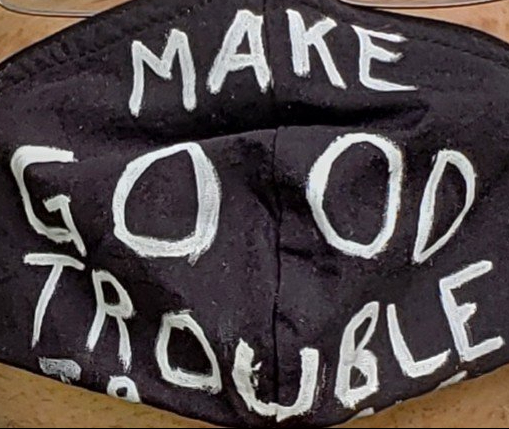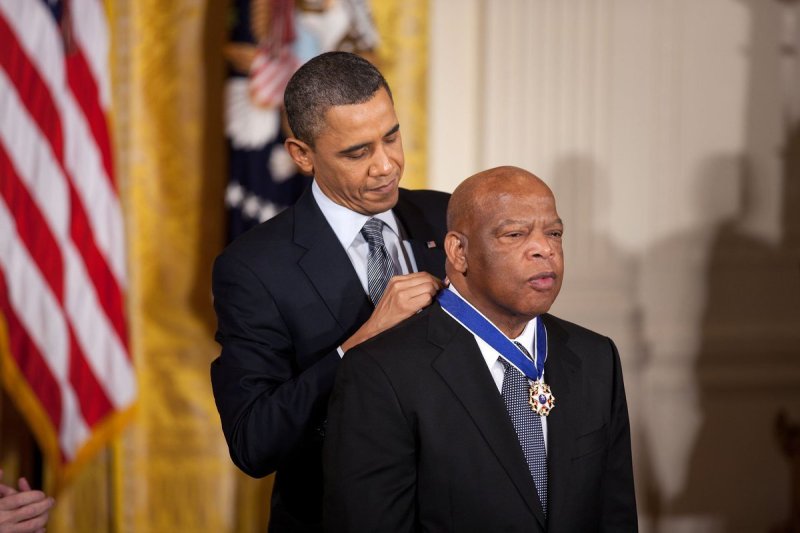You must be bold, brave, and courageous and find a way… to get in the way.
– Congressman John Lewis, 1940-2020
A few years ago, I bought the book, The Children by David Halberstam, but I only read it recently. As an aside, David Halberstam was the commencement speaker when I graduated from college, so I always took a second look at his books.
I looked at this one often in my kindle library, but was never quite ready to sit down for such a serious book. In the last four years, I’ve been engulfed with politics, including racial justice, but I wasn’t ready for a history lesson.
I finally started it last summer, soon after George Floyd’s murder, and with all of Halberstam’s work, it did not disappoint.
I had misinterpreted the title to mean the literal children of the civil rights movement, the young people growing up in that time and after. What I discovered is that Halberstam’s implication that the civil rights movement was left to “the children” – the young adults who risked everything, including their lives to march, to sit at lunch counters, to register to vote, to do many of the things we take for granted, even today.
One of the very surprising things that stood out to me was the level of participation of John Lewis. John Lewis was a hero of mine, but more in an abstract way listening to his modern, inspirational speeches rather than his history, and I wondered why I hadn’t learned his name as readily as I learned about Martin Luther King, Jr. In school. I didn’t realize they were contemporaries, and met and worked together to build what they called the “beloved community.” As I thought about this missing piece in my childhood education, I realized that growing up in the seventies during busing, and my really formative years of middle and high school in the eighties, John Lewis wasn’t part of “history” as we think of it; for that matter, neither was MLK. Lewis’ beating on the Edmund Pettus Bridge was in 1965, one year before I was born, and King was assassinated in 1968 when I was a toddler. These events, and the bulk of the civil rights movement occurred a mere twenty years before I graduated high school; nineteen years to be more precise. In the time between Lewis and King’s assault and assassination, I hadn’t even reached adulthood. This book really brought that home to me. John Lewis would live in my kids’ history books, but for me, he was in my now.
I hadn’t even made it halfway through the book when John Lewis died, and I thought for several days of putting the book down and reading something else, but I didn’t. I finished the story, cringing and welling with tears, and sometimes gasping for air at the horror of it all and the idea that while we’ve come far, we have so much farther to go. When I finished The Children, I immediately read Jon Meacham‘s new book, His Truth is Marching On, and that bridged the short gap between Lewis’ civil rights activism and his congressional career all on that path to the beloved community.
Learn more about John Lewis and his role in the civil rights movement by reading John Lewis in hhis own words in his memoirs, Walking With The Wind: A Memoir of the Movement and Across That Bridge: Life Lessons and a Vision for Change as well as his graphic novel trilogy beginning with March: Book One.
One of the things that I found somewhat amazing, miraculous even, was the number of long-lasting activists all being in the same town at the same time. They didn’t travel to Nashville; they were already there from around the country attending school. John Lewis, Diane Nash, James Bevel, CT Vivian, James Lafayette, Kelly Miller Smith, Rev. James Lawson, who learned the non-violent method he taught them from his trip to India and learning from Gandhi, and of course as witness, David Halberstam, a local journalist with The Tenesseean in Nashville. Reverand Lawson described it as providential during his eulogy for John Lewis in 2020, and that just gave me chills.
If you do one thing, watch the Reverand James Lawson at the funeral of John Lewis in Atlanta, Georgia:


(c)2021



